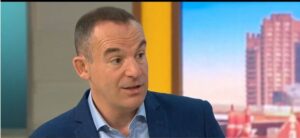
Rachel Reeves had been expected to continue a current freeze on tax thresholds until 2030 but in a surprising move she has confirmed they will start to rise.
Frozen tax thresholds at present mean when people have their wages increase, they are dragged into higher brackets of taxation, even though the cost of living and inflation have also increased.
This phenomenon – known as fiscal drag – meant that people were dragged into paying more tax without income tax itself actually rising.
It had been widely reported that the Chancellor could increase the freeze by a further two years, from 2028 until April 2030 – but she confirmed in her Budget today that she has decided against this.
The Institute for Fiscal Studies previously estimated that 400,000 would have been dragged into paying Income Tax for the first time if the thresholds had been extended, while another 600,000 people would have started paying the higher and additional rates, according to The Mirror.
There is a personal allowance of £12,570 a year before you start to pay tax – on earnings above this amount, you pay the 20% basic rate of Income Tax.
There is a higher rate of 40% which is paid on earnings above £50,270, while anything above £125,140 is taxed at the 45% additional rate.
These thresholds normally rise in line with inflation, meaning when people get a pay rise, the point at which they are dragged into paying a higher rate of tax also goes up – but these thresholds have been frozen since 2021.
These rates apply in England, Wales and Northern Ireland. Scotland has a separate tax system.
Once you earn more than £100,000, you also start losing the £12,570 tax-free personal allowance at a rate of £1 for every £2 that your income goes above £100,000.
Employees also start to pay 8% on earnings above £12,570 a year in Class 1 National Insurance contributions. You pay 2% on earnings over £50,270. There are different rates for those who are self-employed.
The Chancellor told MPs: “The previous government froze Income Tax and National Insurance thresholds in 2021 and then they did so again after the mini-budget.
“Extending their threshold freeze for a further two years raises billions of pounds – money to deal with the black hole in our public finances and repair our public services.
“Having considered the issue closely, I have come to the conclusion that extending the threshold freeze would hurt working people. It would take more money out of their payslips.
“I am keeping every single promise on tax that I made in our manifesto. So there will be no extension of the freeze in Income Tax and National Insurance thresholds beyond the decisions of the previous government.
“From 2028-29, personal tax thresholds will be uprated in line with inflation once again. When it comes to choices on tax, this Government chooses to protect working people every single time.”
Labour previously described the freeze as a “stealth tax on working people” when it was announced by then-Chancellor Rishi Sunak shortly after the pandemic.


















